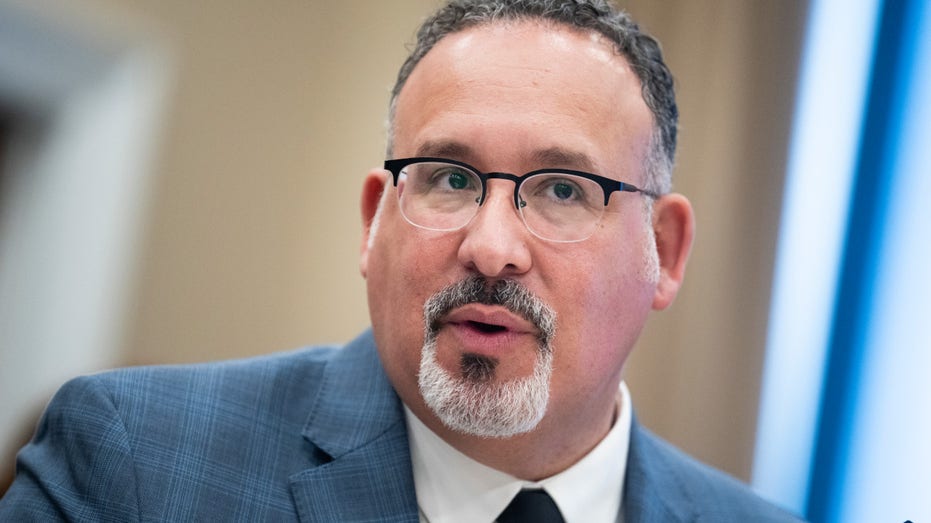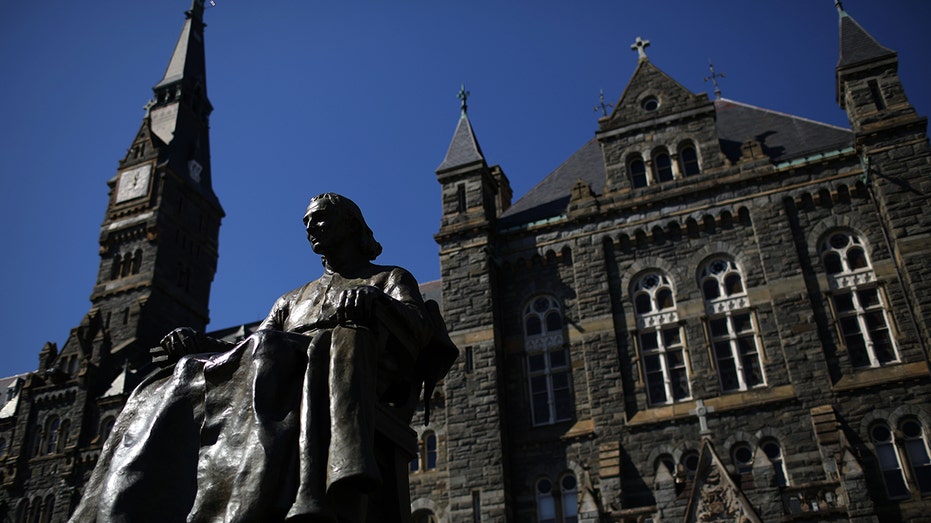Biden admin's botched financial aid rollout under investigation by watchdog
The delayed new FAFSA system has caused colleges to push back admissions deadlines for as long as a month
College has now become a status symbol, not about success: Ken Coleman
Americas Career Coach Ken Coleman sheds light on the cost of college and why companies are removing degree requirements, and reacts to a Gen-Z TikToker going viral for expressing concern over finding a job.
The Biden administration's rollout of a new system for college students and their families to access federal financial aid has prompted a government watchdog to open two new investigations into the botched overhaul.
A bipartisan omnibus spending bill enacted in December 2020 included legislation aimed at reforming and streamlining the process for submitting the Free Application for Federal Student Aid (FAFSA) ahead of the 2024-25 award year. Incoming and current students as well as their families must complete the FAFSA if they want to receive federal financial aid at institutions of higher education in the next academic year.
Despite that lead time, the Department of Education's implementation of the new FAFSA process has been beset by delays that have prevented the agency's Office of Federal Student Aid (FSA) from processing FAFSA applications on time.
With students and their families in the dark about their potential financial aid award, delays have had the knock-on effect of causing colleges and university systems to delay their priority admissions deadlines.
HIGHER ED IS FACING A 'GIANT RECKONING' AS BLUE-COLLAR JOBS PREVAIL, MIKE ROWE WARNS

President Joe Biden and Education Secretary Miguel Cardona have overseen the updated FAFSA system that's been plagued by delays and glitches. (Getty / Getty Images)
In years past, FAFSA applications for the following year would open to students and families in October with institutions typically processing those applications in January to give students time ahead of institutions' enrollment deadlines in May to evaluate their situation and make the best decision for them based on the financial aid package offered to them earlier in the spring.
Delays from the agency's overhaul process prevented FAFSA applications from opening until January, at which time the application was temporarily shut down. When it reopened, the application form used incorrect inflation tables that had to be changed because the outdated data was understating the amount of financial aid students were eligible for — an issue that's delaying applications from being sent to colleges.
"This is going to limit students' ability to comparison shop between institutions," Wil Del Pilar, senior vice president at Education Trust, told FOX Business in an interview. "If you get one offer of financial aid from this institution and not this other one, I think that it's going to be hugely detrimental to people trying to figure out what's the best affordable option for me when considering higher education."
SUCCESSFUL ENTREPRENEUR DITCHES COLLEGE DEGREE FOR 'HANDS-ON EXPERIENCE'

The Education Department had to delay the availability of FAFSA applications last fall due to delays in the project. ( Williams/CQ-Roll Call, Inc via Getty Images / Getty Images)
Del Pilar explained that because of the delays, colleges aren't expected to begin receiving FAFSA information for applicants or admitted students until March 15 at best, which will likely delay financial aid offers into the following month. That's caused individual institutions as well as university systems in states like California and Pennsylvania and others to push back priority admission deadlines. Students in states that award financial aid on a first-come, first-serve basis may miss out on state aid they're eligible for because of the FAFSA delays.
"There are states for example like Illinois where their financial aid is offered on a first-come, first-serve basis. Those students who were delayed in completing the FAFSA or have had challenges completing the FAFSA may lose out on state aid as a result of some of the missteps by the Department," Del Pilar said.
"At this pace, students and families would be lucky if they get an aid offer in April, and I would say that some students probably won't get it until after that date. And so that's why we see some states and institutions pushing back some of their priority deadlines because students and families are not going to have the information they need to make a decision," he added.

Colleges around the country have moved to delay priority admissions deadlines due to the Education Department's delayed rollout of the updated FAFSA. (Win McNamee/Getty Images / Getty Images)
Del Pilar also noted that there remains a glitch in the system that the Education Department is trying to fix that affects students from households with one parent who is a U.S. citizen and another who is not. Students in that cohort have been unable to complete the FAFSA because the bug doesn't allow them to proceed through the application process.
The Government Accountability Office (GAO), a nonpartisan federal watchdog agency, has opened two new investigations into the Education Department's handling of the process — one looking at the information technology (IT) and technical side of the FAFSA reforms, while the other will examine the agency's general planning and execution of the project.
In a report to Congress published in June 2023, the GAO noted "critical gaps in developing a life cycle cost estimate that can inform the project's budget leads to questions about the project's affordability and the amount of requested resources."
GET FOX BUSINESS ON THE GO BY CLICKING HERE
"Further, the lack of documented assumptions and rationales for constraints reduces the reliability of the schedule and limits its ability to serve as a project management tool," the GAO report added. "Until FSA develops a life cycle cost estimate, updates the budget based on this estimate, and documents AED schedule assumptions and constraints, successful implementation of a modernized system is at risk of cost increases and schedule delays."
The Department of Education did not immediately respond to a request for comment.




















